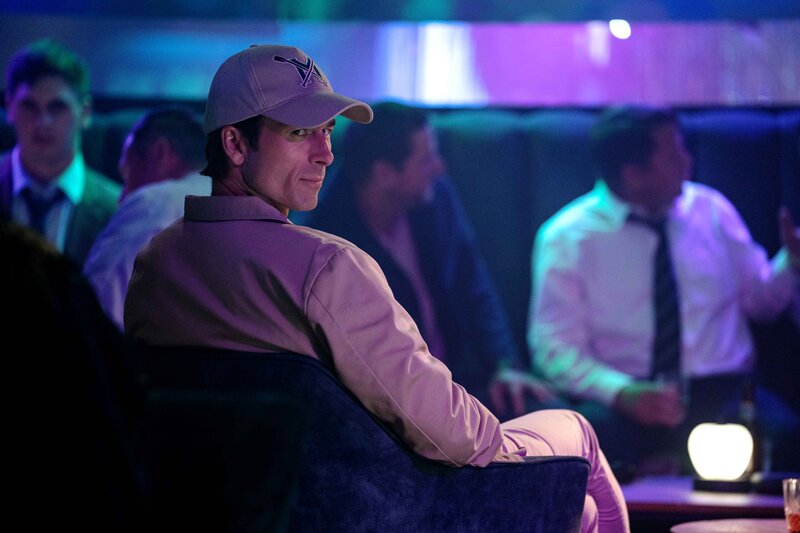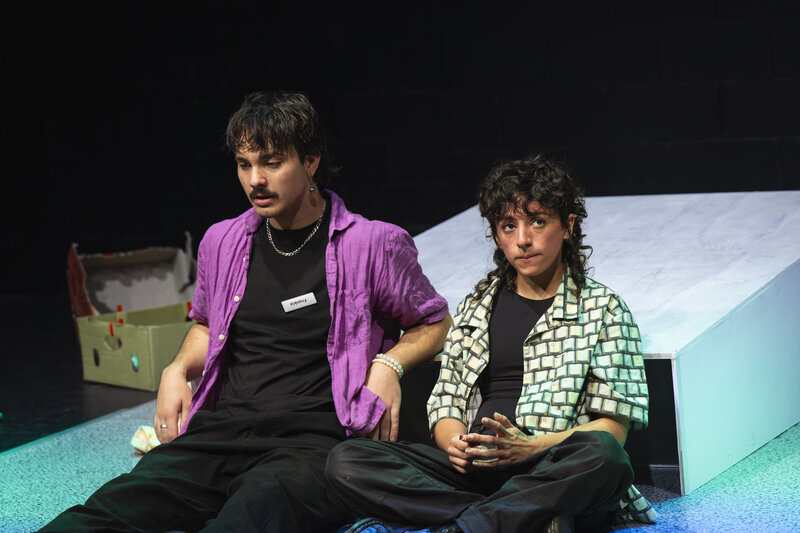In 1979, fundamentalist rebels overthrew the Shah of Iran and, simultaneously, threw the everyday lives of many into total disarray. In the West, it was an event captured in incendiary news clips of fevered young revolutionaries, American hostages, mounting repression and political tensions that exist to this day. But the story that was rarely told, and almost impossible to see from the outside, is what happened afterwards inside Iran to ordinary families. To their dismay, they found their lives and relationships unexpectedly entwined with a new totalitarian reality in perilous ways. In the wake of the Revolution, life went on, but nothing was the same and the nation remained divided. It took a couple of decades and the coming of age of a new generation, but slowly a series of moving, revealing truths from behind the secretive new veil of Iran began to emerge. Among the most powerful was Dalia Sofer’s 2007 novel The Septembers of Shiraz, which drew instant acclaim as a luminous yet grippingly suspenseful debut. It was chosen as one of the New York Times’ Most Notable Books of the Year.
 Sofer, who was born in Iran and fled with her family to New York at the age of 11, introduced readers to an unforgettable family: the prosperous, Jewish Amins. They thrived in Tehran until one day in 1981, when their reality changed abruptly. Her story has now been adapted into cinematic form by screenwriter Hanna Weg and Aussie director Wayne Blair (The Sapphires), with cinematography from Warwick Thornton (The Sapphires).
Sofer, who was born in Iran and fled with her family to New York at the age of 11, introduced readers to an unforgettable family: the prosperous, Jewish Amins. They thrived in Tehran until one day in 1981, when their reality changed abruptly. Her story has now been adapted into cinematic form by screenwriter Hanna Weg and Aussie director Wayne Blair (The Sapphires), with cinematography from Warwick Thornton (The Sapphires).
Isaac Amin is deeply concerned. Radicalism is taking over everyday existence. A successful jewel dealer and law-abiding citizen, out of the blue Amin is accused of being a spy. Taken to a secret prison, Isaac’s life unravels overnight but the effects resonate equally through his stunned family, left to try to figure out what has happened to them in an atmosphere of sweeping change and fear. Isaac’s wife Farnaz defiantly searches for a way to free him, while her relationship with her long-serving and dedicated maid, Habibeh, takes a turn for the worse. Meanwhile Isaac is undergoing brutal interrogation, forever fearing for his life as others around him are tortured and killed.
This is a tale about privilege, justice, loyalty and family. Adrien Brody (The Grand Budapest Hotel) and Salma Hayek (Frida) star alongside Shohreh Aghdashloo (House of Sand and Fog).
As horrific as pockets of what we witness in this movie are, it lacks the nuance and quality of the best of breed Holocaust films such as The Pianist and Schindler’s List. It takes a while to accept Brody and Hayek with strong Middle Eastern accents. The characters they play appear too good to be true – “whiter than white”, who can do no wrong because righteousness is on their side.
Issac is a man who has created employment opportunities for so many and built his wealth through hard work. Farnaz is culturally aware, a sometime writer, well travelled, eloquent and an excellent mother to boot. Their children are salt of the earth. On the other side are tyrants, with whom one can’t rationalise. I dare say desperation calls for desperate measures and I wanted to see these incorporated into the film when things take a decidedly negative turn. And just when things couldn’t look worse – a ray of hope that becomes far more than that. Somehow I just couldn’t and didn’t buy it. The piece de resistance came when the chief interrogator was playing gleefully with his infant, who he brought with him to work daily.
Don’t get my wrong, this story isn’t one of beer and skittles – it is about real hardship and pain and anguish, but it didn’t ring as truly for me as others dealing with human misery. Rated M, Septembers of Shiraz scores a 6 out of 10.
Director: Wayne Blair
Cast: Salma Hayek, Adrien Brody, Shohreh Aghdashloo
Release Date: 7 July 2016
Rating: M
Alex First

David Edwards is the former editor of The Blurb and a contributor on film and television




